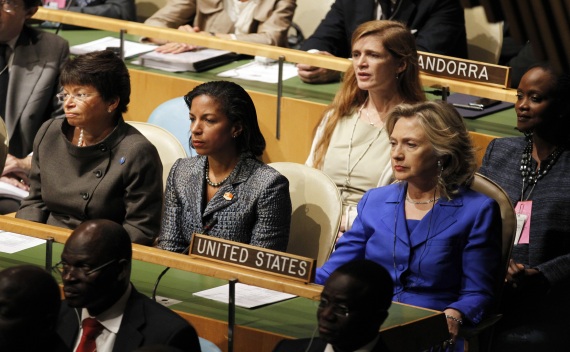Partners in Preventive Action: The United States and International Institutions
More on:

Today, Paul Stares and I published our latest Council Special Report (CSR), Partners in Preventive Action: The United States and International Institutions. It compliments our earlier report, Enhancing U.S. Preventive Action.
With the U.S. military overstretched after a decade of continuous combat operations and the U.S. government $14.7 trillion in debt, the strategic logic of preventive action to reduce foreign crises and conflicts that could embroil the United States in burdensome new commitments has never been more compelling.
Instead of unilateral or informal action, cooperation with international institutions and regional organizations—such as the United Nations (UN), African Union, European Union (EU), and Organization of American States, among others—offers important strategic and operational benefits to the United States. First, these institutions provide an unparalleled international platform for formalizing, extending, and at times enforcing rules, norms, and regimes that regulate state behavior. Second, they confer an important source of legitimacy on diplomatic efforts initiated or supported by the United States. Finally, they significantly increase the pool of available resources, such as valuable information on and access into parts of the world that the United States cannot obtain independently.
In the report, we recommend a series of measures whereby the United States can enhance the effectiveness of leading international and regional institutions, namely:
- The United States should help the UN and leading regional institutions carry out early warning analysis of instability and potential armed conflicts.
- The U.S. intelligence community should collaborate—particularly with the EU—to produce assessments of areas of potential instability in order to prioritize policymakers’ near-term contingency planning.
- The United States should increase its financial assistance to the UN and regional organizations for activities that help to prevent conflict. While assistance to regular budgets is often lost in underperforming institutions, “voluntary funding on a competitive basis” through the State Department’s international affairs budget can support specific preventive programs.
In an effort to prevent conflicts that could require further military commitments and an increased financial burden, enhanced cooperation with international institutions has become a foreign policy priority of the Obama administration. As President Obama stated in April 2010: "It is a vital national security interest of the United States to reduce these conflicts because whether we like it or not, we remain a dominant military superpower, and when conflicts break out, one way or another we get pulled into them. And that ends up costing us significantly in terms of both blood and treasure."
This commitment is further mandated by the government’s relevant strategic guidance documents:
"This [conflict prevention] requires enhanced coordination among the United Nations, regional organizations, international financial institutions, specialized agencies, and other actors that are better placed or equipped to manage certain threats and challenges.” National Security Strategy"The United States needs to guide continued adaptation of existing international institutions and alliances and to support development of new institutions appropriate to the demands of the 21st century. This will not happen without global confidence in American leadership, its political, economic, and military strength, and steadfast national purpose.” Quadrennial Defense Review
"We will enhance our capabilities to act regionally and to shape regional institutions so that we can more effectively cooperate with allies and partners to deliver results and, where necessary, manage disagreements…We will put ourselves on a footing to reform and reshape international institutions—both formal and informal—so they are effectively equipped to handle the challenges of the 21st century.” Quadrennial Diplomacy and Development Review
Conflict prevention is inherently challenging; hard to do, and harder to prove. However, it is both strategically and morally imperative for the U.S. government to make every effort to live up to its mandate. Aptly summarized by Admiral Michael Mullen, Chairman of the Joint Chiefs of Staff, in May 2011: “The reason I’ve been in the military in my whole life is try to prevent wars…I think that is a noble goal that all of us should seek, to end wars and prevent wars as much as possible.”
More on:
 Online Store
Online Store
